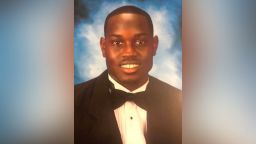Carrying signs that read “Justice for Ahmaud,” the demonstrators marched past majestic live oaks draped with Spanish moss. They chanted Ahmaud Arbery’s name as they wound through the streets, past a hardware store, several homes, a convenience store. They rounded the corner by the floral shop, calling for those watching from the sidewalk to join them.
They soon stopped on a lawn of the Brunswick African American Cultural Center, 10 miles from the residential block where Arbery was shot to death. It was the fifth day of testimony in the trial of the White men accused of killing the Black jogger, and dozens of people had gathered for a march that started outside the Glynn County courthouse.
At the cultural center, where a mural of Arbery’s smiling face sits against a blue and yellow backdrop, Annie Polite took a break, sitting down in her walker.
“The system has got to change,” the 87-year-old Black woman said. “It’s not fair. There’s no justice in what goes on behind close doors. We all deserve equal justice.”
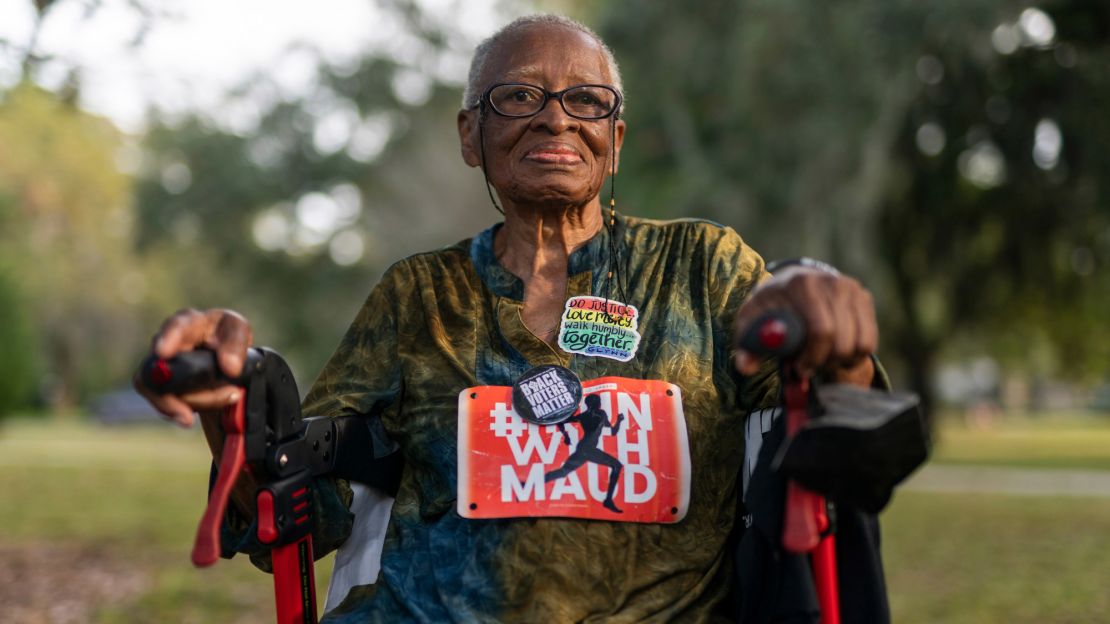
That’s a sentiment other Black residents of this small Southern city echoed recently as the state presented its case against Gregory McMichael, Travis McMichael and William “Roddie” Bryan Jr., who stand accused in the pursuit and shooting death of Arbery, 25, on a Sunday afternoon in February 2020. One Black and 11 White jurors will soon weigh their fate.
Race and the role it might have played in the shooting has not come up inside the courtroom as much as anticipated, except for a defense attorney bringing up the impact high-profile Black pastors and their presence in the courtroom may have on the jury.
But for many outside the courthouse, the trial is not only about getting justice for Arbery, who’d been dead more than two months before the defendants even were arrested. It’s also seen as a fundamental opportunity for the justice system to work the way it should – fairly and equitably – for people of every race.
Across America, 61% of Black adults have little to no confidence in the criminal justice system, a Gallup poll this year found, compared with 41% of White adults. Separately, 88% of Black people feel the criminal justice system favors White people over Black people, compared with 63% of White people who responded to a 2020 CNN/SSRS poll.
In Arbery’s hometown, the trial over his death has underscored the mistrust.
“Many people have been saying – and I’ve been saying it as well – that this is really trying our justice system in the eyesight of many people,” said John Perry II, a pastor and the former president of the Brunswick chapter of the NAACP who lost a bid this month for Brunswick mayor.
“They’re looking intently at this case to see, ‘Can we really trust this justice system?’ … to answer the question in their minds and their hearts, ‘Do we have a justice system that we can depend upon?’”

A quiet wait for answers
While the defendants’ actions and motives face scrutiny in court, some Black residents here have their own theories of why Arbery was slain, often based on their experiences in Brunswick, where about 55% of residents are Black compared with 27% countywide.
No doubt many White neighbors – including some who joined last week’s march – care deeply about bridging a nationwide racial divide laid bare by the killings last year of Arbery, George Floyd, Breonna Taylor and others. But ties between Black and White residents in Glynn County generally don’t often go deeper than cordiality, said Perry, calling it a “lack of intimacy.” Coexisting and “being friendly falls real short of having real intimate connection,” he said.
Aundra Fuller, a middle school special education teacher and the managing director of the Brunswick African American Cultural Center, believes Arbery’s deadly shooting stemmed from a gap in mutual understanding as the defendants encountered him along a suburban street, she said.
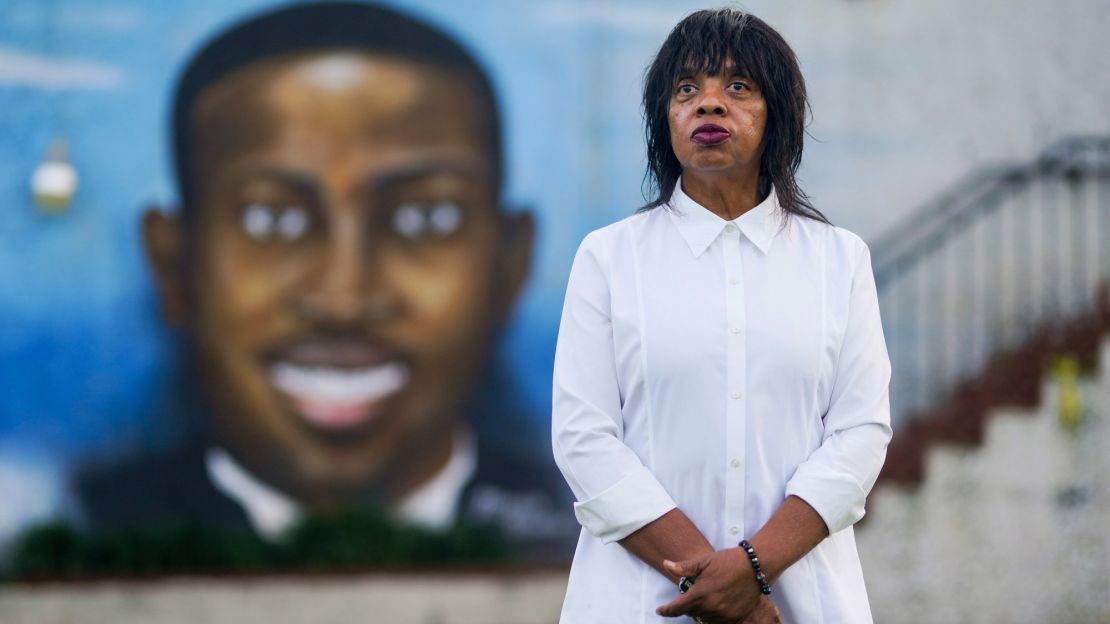
A lack of “cultural awareness” lent itself to a mindset in which the defendants felt comfortable enough to “devalue a human being because of his color,” she said.
Defense attorneys have said the McMichaels and Bryan were trying to conduct a lawful citizen’s arrest of Arbery, whom they suspected of burglary. The men chased Arbery through the neighborhood, effectively trapping him, prosecutors have said. After a physical altercation, Travis McMichael shot Arbery to death at close range with a shotgun. Travis McMichael testified in court that he was acting in self-defense as he and Arbery wrestled over his shotgun.
Helen Ladson, a tour guide here who also ran unsuccessfully for mayor, put it this way: “My question is always: Why did they feel so comfortable, to shoot this man in broad daylight and think that they were going to get away with it? Why were they so comfortable?”
Long before Arbery’s death attracted national attention, there were whispers in this community about the storyline that Arbery had been shot while attempting a burglary, residents said.
James Yancey, a criminal defense attorney who is Black, was struck by how few details about the incident were included in a short article in the local newspaper, he recalled. Perry at the time had similar misgivings.
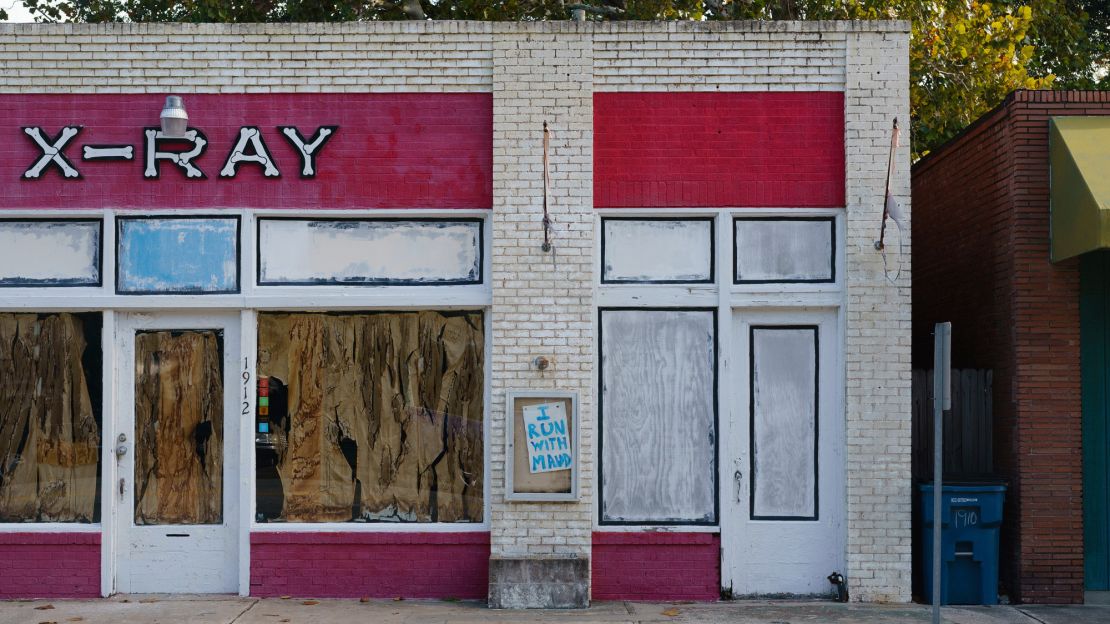
“Because when you say that a young Black man got shot trying to commit a burglary,” he said, key questions come to mind: “Was he armed? Was there a threat to someone’s life that caused them to try to protect themselves from the person committing the burglary? We hadn’t heard any of those things.”
“It’s not new,” said Dwight E. Jordan, a former state parole officer who is Black. “To hear that the cops or somebody representing themselves as police would turn around and shoot somebody, specifically a person of color, specifically a Black person because he was running while Black – that’s not new to me.”
Perry learned his son had played high school football with Arbery. He told his father the one-time linebacker was someone who could make everybody laugh, who was encouraging to underclassmen.
“There was immediately another level of passion,” he said. “Because you have them trying to paint the narrative of who Ahmaud was. But then when you started to discover who he was for yourself, it further fueled the outrage that you would try to paint such a negative, negative character upon someone who sowed so many seeds of good within our community.”
Some soon compared Arbery’s killing to that of Trayvon Martin, a Black 17-year-old who was fatally shot in 2012 in Florida by a member of the neighborhood watch who claimed self-defense. The shooter was later acquitted.
“There were people on Facebook that were saying, ‘Hey, y’all talking about Trayvon Martin, but we have a Trayvon Martin case right here, and nobody is saying anything about it,’” Ladson remembered.

The tension erupts – but unsurprisingly, somehow
It was only after video of the shooting, filmed by Bryan, publicly emerged in early May 2020 that the McMichaels and Bryan were arrested.
The community’s tension erupted. Fuller called it “shocking.” Perry was “appalled.” And Yancey was “incredulous” that authorities had not released the footage sooner. The Brunswick district attorney at that time was later indicted on charges of violating her oath as a public officer and obstructing a police officer in connection with her alleged actions following Arbery’s death.
Then-prosecutor Jackie Johnson had directed two Glynn County police officers not to place Travis McMichael under arrest immediately following the shooting, according to her indictment. She was also accused of violating her oath of office by “showing favor and affection” to Greg McMichael, a former investigator in her office.
But as upsetting as the video was, it didn’t surprise Black residents here.
“Having been Black my entire life, lived in America my entire life, it’s become almost expected to see bad things happen to Black people,” Yancey said. “Seeing that video, it just continued to confirm the value of the lives of particularly Black men in America.”
Asked what he thought when he saw the video, Jordan quoted Childish Gambino: “This is America.”
Nurse Sonia Richardson, mother to three Black sons and grandchildren, “just couldn’t believe that.”
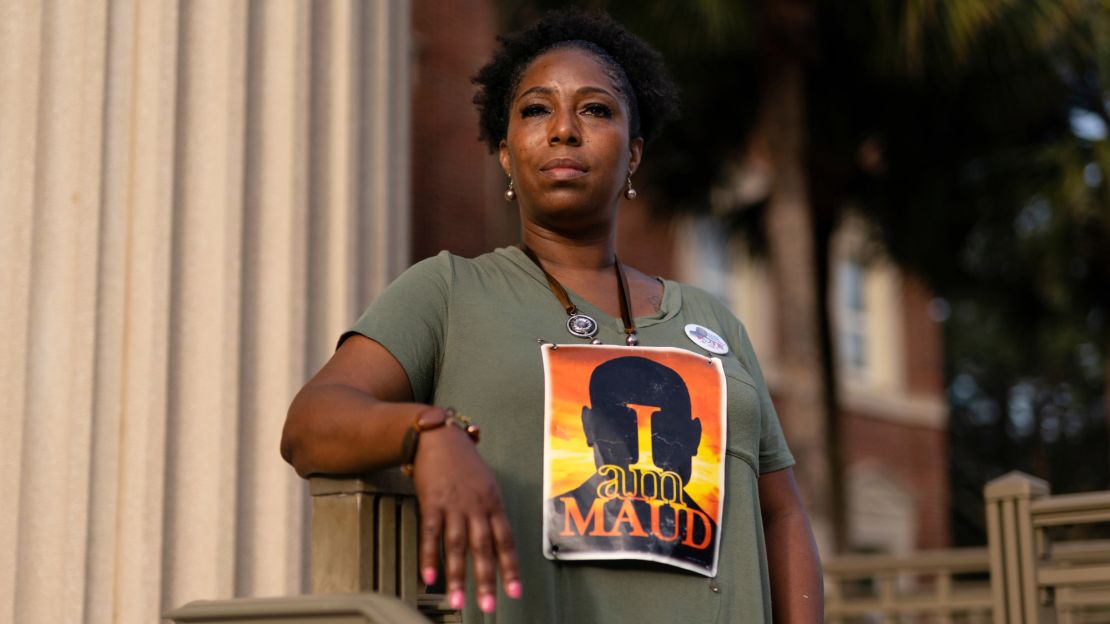
“It was like (the case) was just toyed around with, like people didn’t take it serious. The law didn’t take it serious. Our criminal justice system didn’t take it serious,” she said.
The episode shook Perry’s faith in the justice system, he said.
“There was nothing that we could do about the McMichaels’ decision (to pursue Arbery). What’s in the heart of a man and how he chooses to act, you can’t control that,” he said. “But if something like that does happen, you’re definitely hoping that when law enforcement shows up, that they’re going to make an arrest, that they’re going to say this is injust, and that as a civil society, this is not how we operate. But that’s not what we got.”
Perry was grateful for the work of state Attorney General Chris Carr and the Georgia Bureau of Investigation, which took over the case around the time the video came out. With their involvement, Perry is confident some level of justice will prevail. But as a citizen, he wondered, “Should I have to reach that high to get justice on a local level?”
“We’re trusting them to be enforcers of justice,” he said. “And this gross incident happens, and they turn a blind eye.”
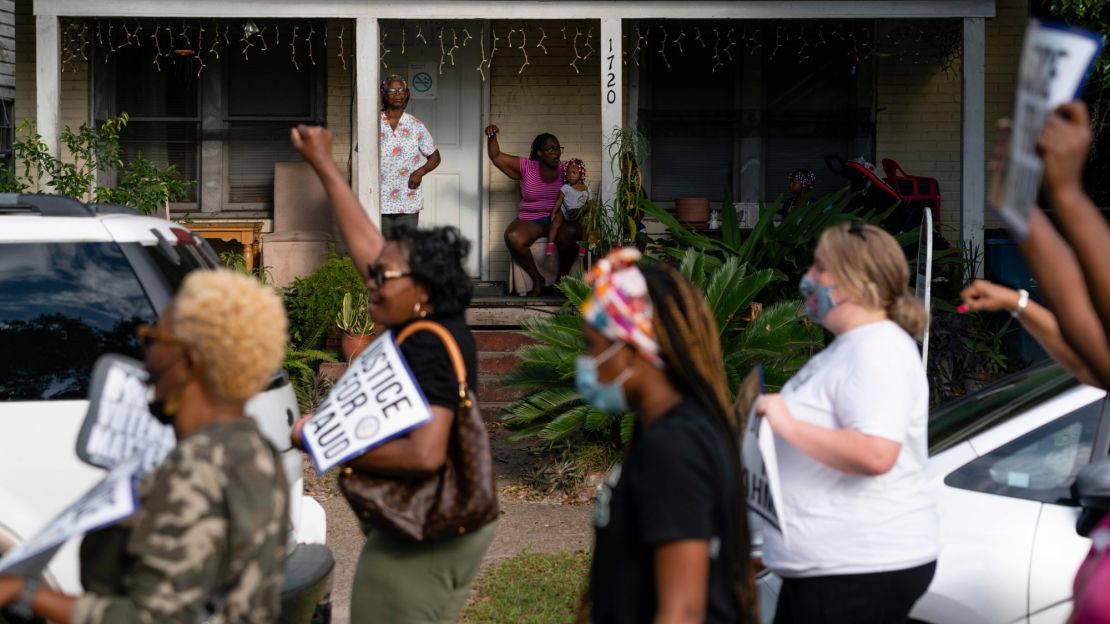
Lady Justice faces a moment of truth
As the jury deliberates, these Black residents largely are optimistic, hopeful for guilty verdicts for all three defendants. And the jury’s racial makeup presents an opportunity, Fuller said: If a jury of one Black person and 11 White people convicts three White men in a Black man’s killing, the convictions would appear unimpeachable.
“The jury is charged with following the law,” the special ed teacher said. “And if they follow the law, it doesn’t matter what color they are. So, it may be surprising that this all-White jury convicts them.”
But she, like others, is braced for disappointment. Acquittals in the case would be “just another day at the beach” for Black people in America, she said. “We’ve had injustice for so long … we don’t expect justice.”
Perry believes in an “absolute truth,” which to him means the defendants will be found guilty. But it also means seeing the justice system live up to the promise that “justice is blind – it doesn’t take into consideration color.”
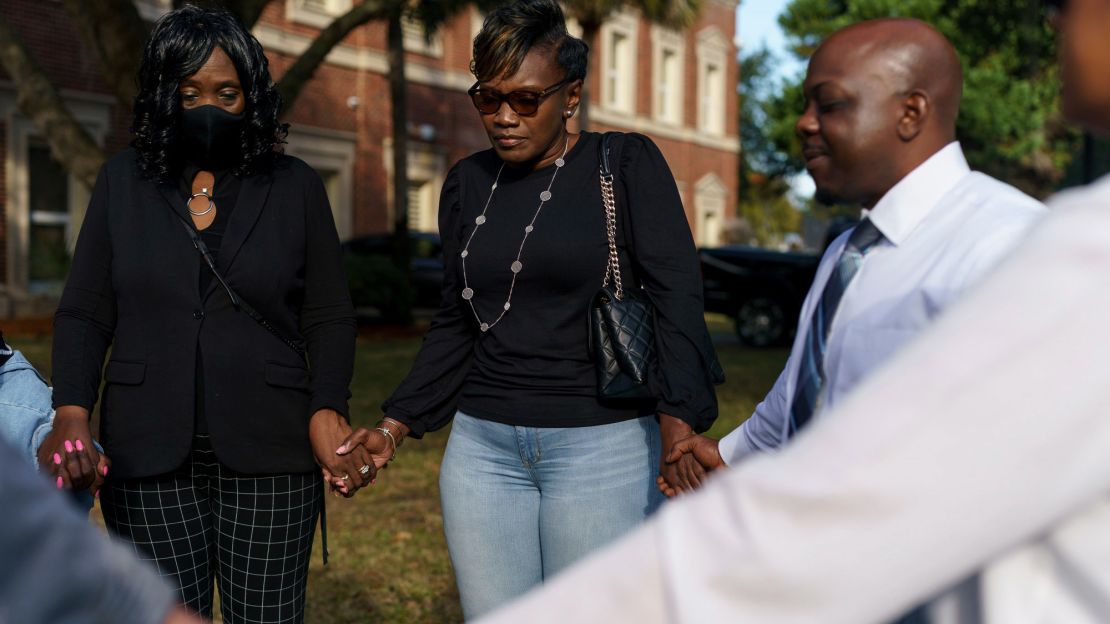
“To see the process of justice function like the promise of justice, that’s what justice looks like for me,” he said.
“At the end of the day, who’s on trial here is the United States, the judicial system,” said Jordan, the former parole officer. “Lady Justice has to show that she can peep every now and then to see the injustice, to see that her scales are unbalanced and try to balance it if she can do it – if she’s willing to do it.”
Back at the march, Polite got up out of her walker and stepped forward to kneel with protesters, clergy people and members of Arbery’s family to pray for that justice.
“This is a battle that’s been going on all of my life, and it still goes on,” she said. “As long as there’s a fight, I must stay in the battle.”
CNN’s Demetrius Pipkin contributed to this report.


















